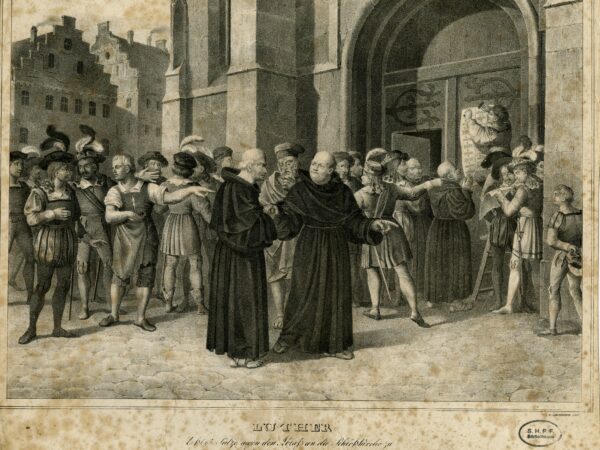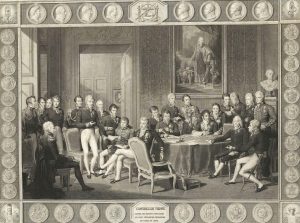In Germany
Jubilees of the Reformation were established in Germany from 1617 to 1917; they emerged from a combined project upheld by the political, university and ecclesiastical authorities of the Protestant states. These different institutions established a celebration whose main role was clearly to provide an alternative version to the jubilees of the Roman Catholic Church, which had given rise to the sale of indulgences. And in fact, by periodically confirming a religious identity which had originally come into being because of these indulgences, the Protestant jubilees were used by the above-mentioned authorities to strengthen their anti-Catholic position.
In France and Switzerland
France used to be entirely Catholic and then later it became a secular state – this is why the idea of a particularly Protestant jubilee used to cause difficulties and this is still the case. Nowadays, in the XXIst century, ethnic or sexual minority groups all have their own historical celebrations but the Protestant Church does not like to be considered in this light as it would call to mind unhappy memories of having had to break away from the established Church and destroying its unity.
That is why Protestants, who are in the minority and who do not appear to be an essential element of the French identity, favour a discreet jubilee, which will probably not receive much attention at a national level.
As for the Genevan and Swiss Protestant jubilees of the XVIIth century and at the beginning of the XXth century, although they were supported by the political, university and ecclesiastical authorities, they had little impact compared to the German Lutheran jubilees as there was no central organization to represent the different bodies.






